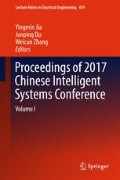Abstract
The scenic comment information from visitors often hidden the different aspects of the recommendations and expectations of the attractions, the extraction of these key information will help the spot managers find their own shortcomings and improve themselves. In this paper, we improved the author topic model and proposed a model of clustering the negative comments of the scenic spots. There are two improvements from our proposed model. Firstly, we added the importance of the comment category to the text clustering. Secondly, in order to prevent the stop words accumulating in the sampling process, we introduced the balance weight to the proposed model. Experiments showed that the model could not only effectively cluster these data, but also could extract the rich information related to different comment categories from the clustering results, which could help the managers of the scenic spots to better manage the attractions and attract tourists.
Access this chapter
Tax calculation will be finalised at checkout
Purchases are for personal use only
References
Kavitha Karun A, Mintu P, Lubna K. Comparative analysis of similarity measures in document clustering. In: International conference on green computing, communication and conservation of energy;2013. p. 857–60.
Bharti KK, Singh PK. Hybrid dimension reduction by integrating feature selection with feature extraction method for text clustering. Expert Syst Appl Int J. 2015;42(6):3105–14.
Lee S, Kim J, Myaeng S H. An extension of topic models for text classification: a term weighting approach. In: International conference on big data and smart computing. IEEE;2015. p. 217–24.
Hashimoto T, Chakraborty B, Aramvith S, et al. Affected people’s needs detection after the East Japan Great Earthquake—time series analysis using LDA. In: Asia-Pacific signal and information processing association, 2014 summit and conference. IEEE;2014. p. 1–6.
Liu G, Xu X, Zhu Y, et al. An improved latent Dirichlet allocation model for hot topic extraction. In: IEEE fourth international conference on big data and cloud computing. IEEE;2014. p. 470–6.
Ding Y, Yan S, Xiao Y, et al. Ranking algorithm based on relational topic model. In: International joint conference on neural networks. IEEE;2015. p. 1–8.
Yang Z, Kotov A, Mohan A, et al. Parametric and non-parametric user-aware sentiment topic models. In: International ACM SIGIR conference on research and development in information retrieval. ACM;2015. p. 413–22.
Pyo S, Kim E, Kim M. LDA-based unified topic modeling for similar TV user grouping and TV program recommendation. IEEE Trans Cybern. 2014;45(8):1476–90.
Li HE, Jia Y, Han W, et al. Mining user interest in microblogs with a user-topic model. Commun China. 2014;11(8):131–44.
Lu Y, Okada S, Nitta K. Semi-supervised latent Dirichlet allocation for multi-label text classification. In: Recent trends in applied artificial intelligence;2013. p. 351–60.
Huynh T, Fritz M, Schiele B. Discovery of activity patterns using topic models. In: UBICOMP 2008: ubiquitous computing, international conference, UBICOMP 2008, Seoul, Korea, 21–24 Sept 2008, Proceedings. DBLP;2008. p. 10–9.
Ichise R, Fujita S, Muraki T, et al. Research mining using the relationships among authors, topics and papers. In: International conference information visualization. IEEE Computer Society;2007. p. 425–30.
Cai H, Yang Y, Li X, et al. What are popular: exploring twitter features for event detection, tracking and visualization. ACM international conference on multimedia. ACM;2015. p. 89–98.
Blei DM, Ng AY, Jordan MI. Latent Dirichlet allocation. J Mach Learn Res. 2003;3:993–1022.
Acknowledgements
This work is supported by the National Natural Science Foundation of China (No. 61320106006, No. 61532006, No. 61502042).
Author information
Authors and Affiliations
Corresponding author
Editor information
Editors and Affiliations
Rights and permissions
Copyright information
© 2018 Springer Nature Singapore Pte Ltd.
About this paper
Cite this paper
Lin, Z., Du, J., Li, Y., Ye, L., Luo, A. (2018). Scenic Negative Comment Clustering Based on Balance Weighted Comment Topic Model. In: Jia, Y., Du, J., Zhang, W. (eds) Proceedings of 2017 Chinese Intelligent Systems Conference. CISC 2017. Lecture Notes in Electrical Engineering, vol 459. Springer, Singapore. https://doi.org/10.1007/978-981-10-6496-8_28
Download citation
DOI: https://doi.org/10.1007/978-981-10-6496-8_28
Published:
Publisher Name: Springer, Singapore
Print ISBN: 978-981-10-6495-1
Online ISBN: 978-981-10-6496-8
eBook Packages: EngineeringEngineering (R0)

